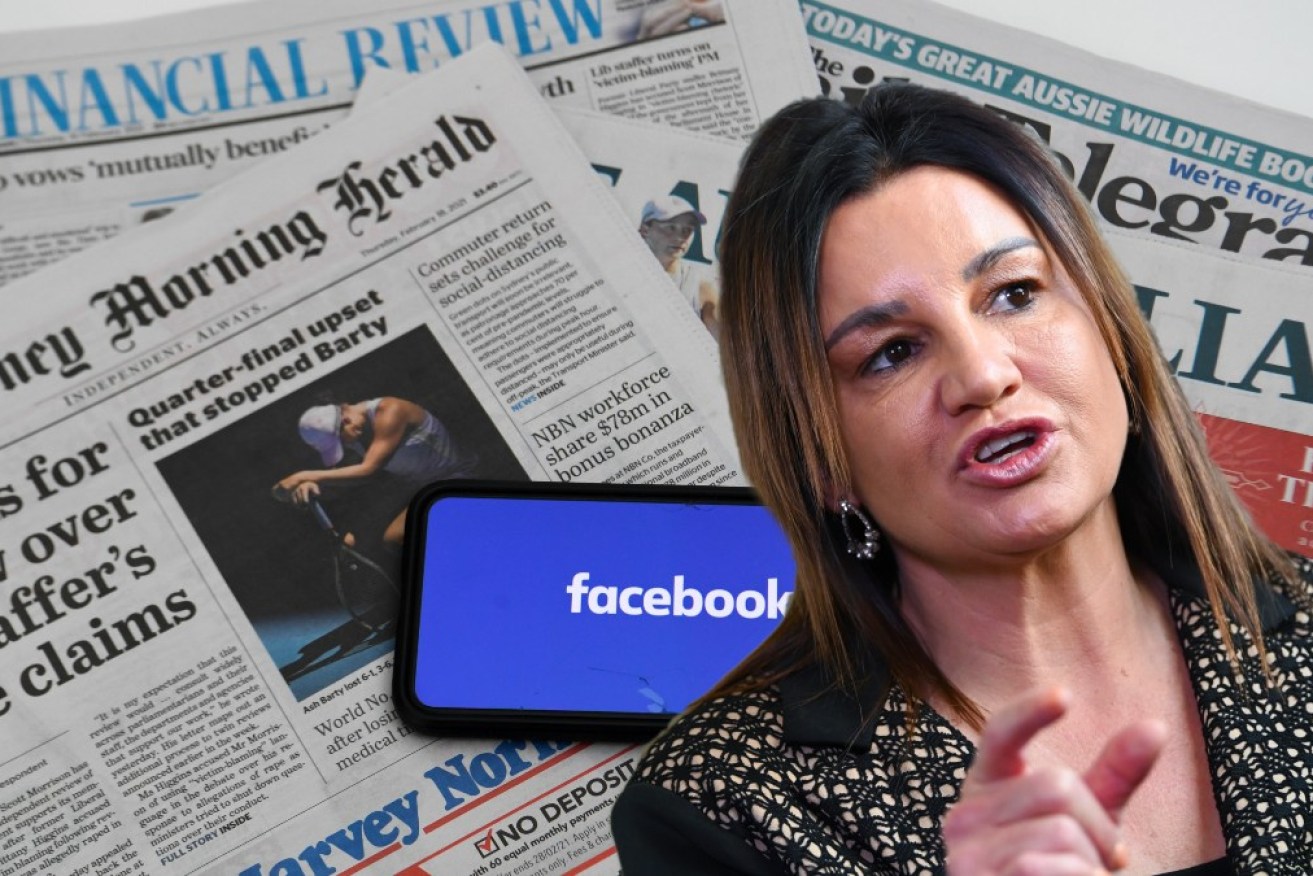What’s bad about the media code deal? How much time do you have?


A deal inked on Wednesday will have terrifying ramifications for Australia, Jacqui Lambie writes.
Mark February 24 in your calendar as the day the media bargaining code passed into law, and the day we invited the wolf at the door in for tea.
This bill is going to wreak havoc on public and not-for-profit news organisations, small news organisations, and even harm small businesses.
By some estimates, Google is set to spend up to $300 million a year in agreements with Australian news publishers. It makes $10 million a year on ads placed against news articles.
Any business paying $30 for a product they’re selling for $1 will not remain a business for long. That loss has to be covered somehow: Either by Google, or by Google’s customers — in the form of higher prices for advertisers.
The average business advertising on Google spends $30 a day. That’s a far cry from the $10,000 you’d easily have to drop for a full-page ad in a newspaper. Most businesses can’t afford that. Most businesses are small.
Google and Facebook are not competing for the same advertisers as the papers or TV networks, because not every business has a piggy bank big enough to drop on a 15-second advertisement on television, or in the paper. It is not cost effective.

Facebook and Google held us to ransom and threatened to quit Australia rather than be forced to pay for news content.
For every JB Hi-Fi or Harvey Norman, there’s 10,000 small businesses doing their best to try and earn an honest crust.
They can get in front of their customers for pennies on the dollar if they go through the digital players.
They’re the ones whose prices are set to go up from this code.
The big news corporations don’t care about that, because they’re not customers of the big digital players to begin with. For them, nothing changes.
Google and Facebook created a new market for advertising, which was targeted, cost effective and local.

Look no further than the familiar players for the big winners in this deal.
The news companies have invested precisely nothing in developing this market, but they still want a piece of the benefit.
TV networks make money by selling advertising space during their programming, just like Google makes money by selling advertising space beside their search engine results.
To argue that Google should have to pay news companies for every dollar it makes against the real estate it produces is like arguing that people who appear in the evening news should be entitled to revenue the TV company collects by selling advertising between breaks in the 5pm bulletin.
Far from helping Australian journalism, this law gives millions to those lucky enough to already be operating, and nothing to anybody who’s trying to start a new media organisation to compete against them.
You don’t promote competition by giving the current players free money and pulling up the drawbridge to all new players.’’
But it’s worse than that.
Because it’s not like all players benefit equally. The Australian media landscape is already so concentrated that this money is going to overwhelmingly benefit the ones with the overwhelming share of the current news market. Five outlets get more than 95 per cent of the benefit.
The public broadcasters are not going to see a single cent of new money, thanks to this bill.
The only people who are able to decide how much money our public broadcasters have are those in the government.
If the government decides that the ABC or SBS don’t need that extra money, they will just cut their budget.
So now we’re left with a public broadcaster with less funding certainty, with no extra funding, and who is now reliant on two multinational corporations to cover their costs.
Thanks to this media code, we’re one step closer to the public broadcasters being financially dependent on the private sector for their funding.
This code is making the Australian media landscape more dependent on the success of Google and Facebook, not less.
News Corp is currently trying to make its own news wire service, NCA Newswire, a profitable product.
Currently, it’s competing with a not-for-profit alternative, AAP.

Wire service AAP barely made it back from the brink. Now it faces a new battle.
AAP is not included in the code. News Corp is included in the code, and News Corp will get money from the code.
If AAP is unable to compete with the only competitor it has, it could go out of business.
Anybody who supports a free and fair market should be outraged by this bill being passed.
It is a bipartisan shakedown, delivered for no other reason than to show we’re capable of one.
If you want to run a business out of town because you don’t like how it’s doing business, fine. But when they’re gone, it won’t just be journalism that suffers.
We’re all now going to pay the price just so the major parties get a positive headline from the media monopolies that demanded this legislation in the first place.
I hope it’s worth it.
Jacqui Lambie is a senator for the Jacqui Lambie Network








